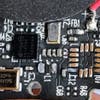What things am I a dumbass about?
Had someone contact me because a browser interface was ‘down’ and it was actually a cert issue. It surprised me that in an IT context, this person didn’t have a basic understanding of SSL certs. They didn’t even know how to add a cert exception.
It got me thinking, what basic ubiquitous things am I a dumbass about outside of IT?
Ive seen lots of ‘fun facts’ compilations, but it would be better to get a wide range of subject suggestions that I can spend 30 minutes each or less on, and become a more capable human.
Like what subjects would plumbers consider basic knowledge? Chemical interactions between cleaning products and PVC pipes?
What would an accountant or a landscaper consider to be so basic its shocking people can live their lives without knowing any of it?
For most areas of expertise, its difficult to know even what the basics are to start with.







Add comment